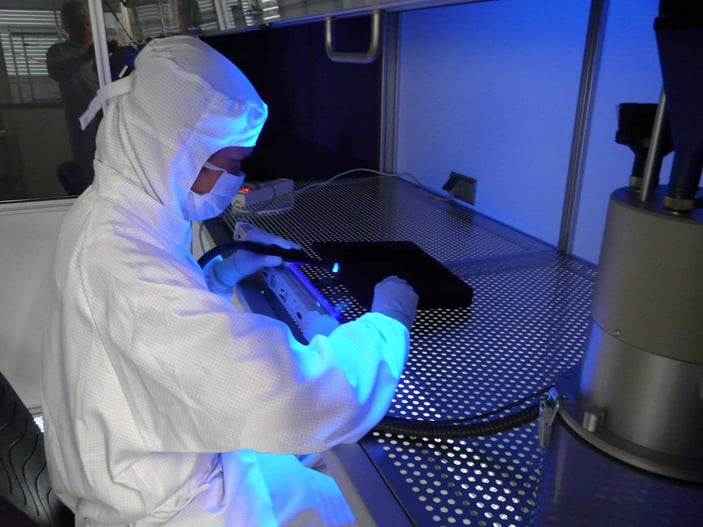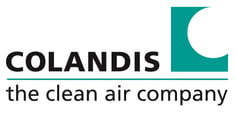So that the cleanroom can maintain its air cleanliness class according to ISO, it is necessary to check all factors in the cleanroom for their cleanroom suitability and to optimise them, if necessary. Besides machines, assemblies and some processes in the cleanroom, it is above all the personnel who work there, that contribute significantly to the purity of the room. In this blog post, we give an insight into the most important rules of behaviour, which must be observed when working under clean conditions for employees.

Staff in a cleanroom
The employees in a cleanroom are considered to be one of the biggest sources of contamination. Especially the particles found on the human body, such as dust, skin particles, hair or even bacterial particles can severely impair the cleanliness class of the room. Through a high intensity of movement of employees, these individual particles quickly reach the clean environment, so that the particle emission can be increased by intensive movements many times.
In addition to a cleanroom-compatible dress code the behaviour of the staff itself in such an environment is of great importance in maintaining the air cleanliness class of the cleanroom. Only through appropriate training, a transparent and open communication, the staff can be enabled to behave adequately in the cleanroom.
How should employees behave?
The rules of proper behaviour in a clean environment should be adhered strictly by every employee, visitor and even management, so as not to unnecessarily contaminate the cleanroom. The behaviour rules can be divided into different categories:
- Personal traffic: One of the most important rules is that only trained staff should work in the cleanroom. Only the required minimum of staff should be present at the clean workplace. When not busy or just monitoring, staff should stay as far as possible from the critical area.
- Personal: Bringing personal items into the clean environment such as jewellery, food or handbags should be forbidden. Also the use of make-up is not permitted.
- Food and beverage: Bringing food and beverage to the clean workplace is prohibited. They can lead to a high degree of particle emission. A water dispenser in the personnel lock is very accommodating for staff.
- Movement: An intensive movement can lead to a stronger particle emission. That's why the staff should move carefully in a clean environment. Hectic or fast movements should be avoided.
- Diseases: Never cough or sneeze in the direction of the critical work area. It should be avoided under any circumstances. If any employee is unfit for working in a cleanroom temporary or permanently - after an appointment with a doctor - the employee should be transferred into another equivalent workplace in the company.
- Material: No further storage should be provided in the clean area, apart from materials and objects required for the production.
- Miscellaneous: Only use the permitted cleanroom wipes and special cleaning materials for cleaning the area. For taking notes or sketches only ballpoints or fiber-tip pens should be used (no pencils). If paper is brought into the cleanroom, it should be suitable for use in cleanroom.
If these and other important rules of conduct are observed by the trained personnel during work in the cleanroom and consistently adhered to, strong particle contamination by humans in the cleanroom can be reduced.
In addition to adhering to certain rules of conduct in the cleanroom, the dress code and intensive knowledge of the processes when entering and leaving the clean environment can also contribute significantly to ensure the air quality of the room. If you would like to learn more about “behaviour in the clean environment”, then download our free whitepaper!

